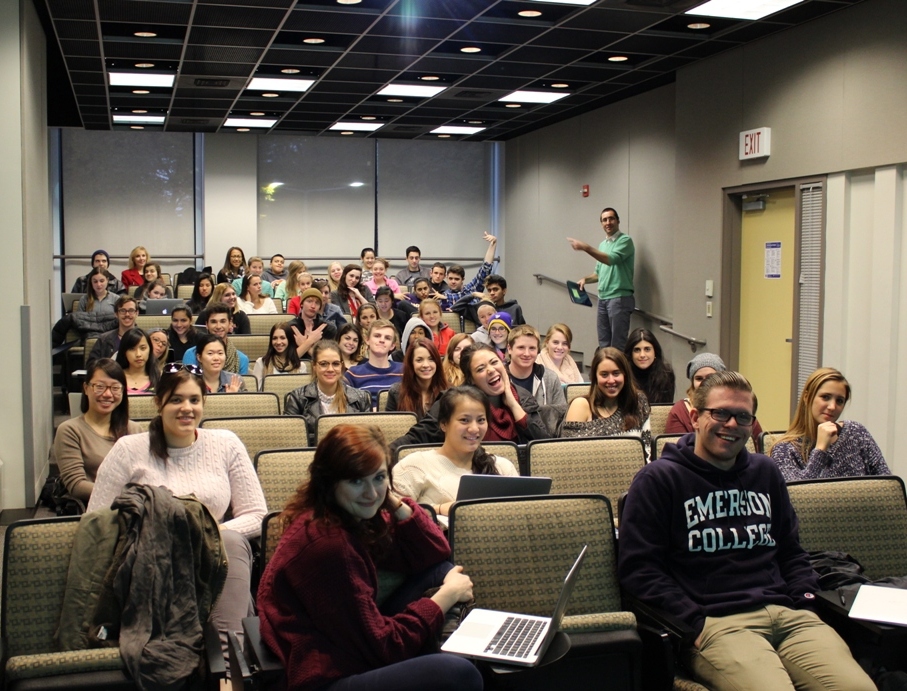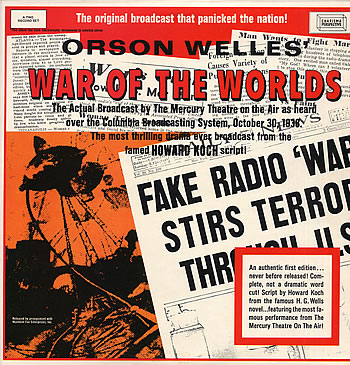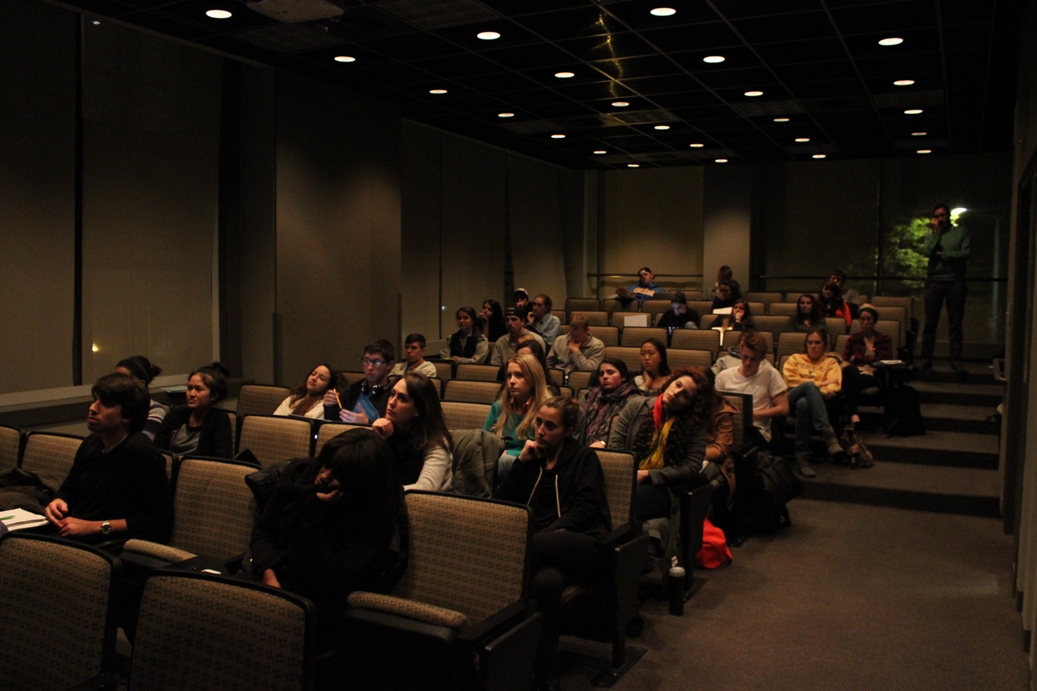On Monday, November 4th, I gave my first guest lecture at Emerson College. It was a double bill, with a matinée from 4-6pm and an evening performance from 6-8pm, as this is a large freshman cohort. The title of my lecture was ‘Managing Choice: Why having more media means we may be getting less out of it – and what we can do about it’.
I started with the 1938 Halloween Eve radio production of The War of the Worlds by Orson Welles…
From FDR’s Fireside Chats to the broadcasting of the coronation of Queen Elizabeth II, the announcement of JFK’s assassination, the moon landing, Watergate and the Challenger Disaster – to name but a few – ‘old’ media structured the public sphere, shaped our collective identities and created an imagined community. Elihu Katz called TV ‘the altar of the living room’ as watching it was a familial and social experience.
In the following part of the lecture I looked in more detail at Katz’s seminal (and at many levels prophetic) work on segmentation, the loss of shared experience, the changing nature of media events and his tongue-in-cheek declaration that ‘television is dead’.
Transcript of MIT forum with Elihu Katz
Podcast of MIT forum with Elihu Katz
AAPS podcasts on the End of Television
At this point students usually protest, citing emerging forms of shared media experiences and events, such as ongoing commentary during TV shows using the hashtag (not to mention big sporting events and celebrity/reality TV shows).
I then examined contemporary patterns of internet use and our tendency to quickly fall into habitual patterns of convenience and comfort, which inevitably create distortions – such as power laws and echo chambers. While in theory choice is a great concept, in reality it is a double-edged sword as it creates paradoxes and dilemmas while augmenting humanity’s worse traits (fear and laziness).
The combination of user-centered / choice-oriented web navigation and highly intensive, sophisticated algorithmic personalisation by search engines and social media creates filter bubbles, which further narrow the range of opinions, ideas and people we come across online.
The last part of the lecture gave students an opportunity to reflect on the conditions, situations and conscious choices that enable us to become active users, citizens and consumers. Understanding when and why we are more mindful and aware of the surroundings and people around us is key to engaging with others.
Choice is fundamental to human freedom and progress. However, choice has to be framed and managed. It is framed and managed anyway – there is no such thing as infinite choice, especially when money, time and energy are involved – so unless we actively manage it outselves, others will manage it for us. The media – and in particular new, social and civic media – can be an amazing tool of empowerment and voice. But, at the end of the day, we are the ones who have to actively seek ideas and people who challenge us – who are different from us. This is how we learn.



